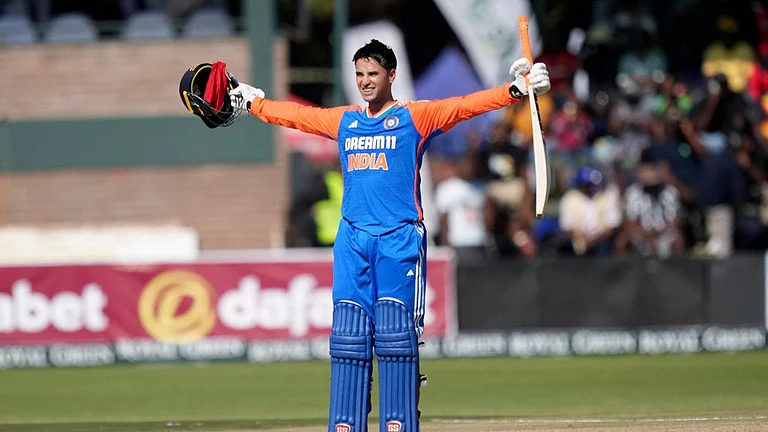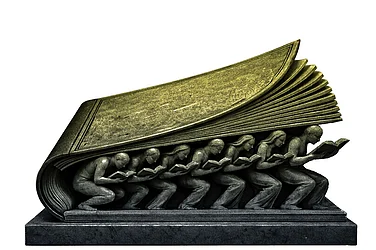The effort is to rehabilitate the image of Kerala Police, projecting them as a modern, ‘humane’, efficient, techno-proficient force. But it is their representation as blunt, unsubtle instruments of power and authority – of the “give me five minutes alone with the suspect” sort – that endures in public memory. For all the Cyberdomes and community policing, a steady diet of custodial deaths and alleged third-degree interrogations in recent years has only reinforced this impression. As has the instinct to rely on such time-honoured crowd-dispersal techniques as the lathi charge and water cannon.
The churn between these diametrically opposed impulses has, human rights activists contend, brought to the surface hints to a deeper malaise. “Instances of police brutality or custody deaths are often conveniently attributed to errors of judgment, flawed training or as the work of ‘a few’ rotten apples, but such analyses miss the point,” says Preetha K.K., an advocate with the Kochi chapter of Human Rights Law Network (HRLN), suggesting that the apple cart itself is diseased.
But the more pressing question pertains to, for the sake of idiomatic consistency, the identity of the cart’s handlers? Over the past couple of years, activists say, a series of high-profile incidents – running the gamut from suspected electoral fraud and false FIRs to unlawful detention, torture and alleged encounter killings – point to a nexus between political leaders of all ideological hues and the police. Worryingly still, it has brought to light a creeping politicisation within the force.
In May 2018, a report from the police’s Intelligence Department warned that an unhealthy trend toward politicisation was evident at police association meetings. Cautioning against a deleterious impact on policing efforts, the report listed such service rule violations as inviting political leaders to deliver speeches at said meetings, and to martyrs’ commemoration besides political sloganeering. Among the most flagrant breaches was the decision of some 30-50 personnel to wear red shirts – ostensibly a display of their political leanings – and sit apart from their peers at a Kerala Police Officers’ Association (KPOA) conference attended by CM Pinarayi Vijayan.
Another intelligence report ahead of the Lok Sabha polls last year pointed out that members of the Kerala Police Association (KPA) were collecting or coercing handover of postal ballot papers from an unspecified number of service personnel with the intent to engage in proxy voting. The evidence was credible enough for the state Chief Electoral Officer Teeka Ram Meena to demand action by DGP Loknath Behera. In both instances, probes were instituted – with much publicity but little else to show.
“Politicisation of the police force in Kerala is not a recent phenomenon. The leaders of the police association that belongs to the ruling party decide everything. Like trade unions, the association leaders play a great role even in local stations. Nothing other than what has been pronounced by the association will be implemented locally. Both the top police leadership and the associations have destroyed independent and judicious functioning of the state’s police force. The leaders of such associations are leaders of the ruling party in uniform,” said George Pulikuthiyil, founder-director of Jananeethi, an access-to-justice civil society organisation based in Thrissur.
“To be very frank, almost half of the Kerala police, directly or indirectly, support the views of the RSS and the Sangh Parivar, from bottom to the top. (The first-of-its-kind arrest of former DGP T.P. Senkumar for hate speech against Muslims in 2017 and his subsequent veer towards the BJP is telling.) The rest of them are either in CPI(M) or with the Congress. If magisterial powers are conferred to this force, imagine the consequences,” adds Pulikuthiyil, referring to the government’s decision last year to streamline and restructure the force along the Metropolitan model.
Flouting norms and displays of allegiance are one thing, but allowing the police to wield powers on par with those of a collector is to, in effect, enable human rights violations, Preetha contends, noting the invocation of UAPA in the recent charge-sheet against suspected Maoist youths Alan Suhaib and Thaha Fasal as proof positive of the dangers of allowing a ‘politically-compromised’ police force to act as judge and complainant.
“The poor, the marginalised and the most vulnerable suffer. Those without power or privilege, such as Dalits, Adivasis, among other groups, are meted disproportionately worse treatment,” she says. The lack of adequate action taken against the Sangh Parivar-backed attacker who pepper-sprayed Dalit activist Bindu Ammini, one of the two women to climb Sabarimala last year, was further evidence that the police moderated its response relative to the influence wielded by either party in a dispute, she adds.
Despite repeated admonishments of the police force, the number of custody deaths – officially, eight since the LDF came to power in May 2016, although leader of the opposition Ramesh Chennithala put it at 32 – have dulled some of the lustre from his flood relief efforts and principled stands on Sabarimala and the CAB-NRC, among other issues.
What then is the solution? Activists call judicial commissions instituted to probe instances of custodial deaths “toothless” and merely advisory in capacity while other avenues of redress such as the Human Rights Commission and Police Complaints authority are supposedly manned by loyalists of the various parties. For former police chief P.K. Hormis Tharakan, the answer lies in implementing the Kerala Police Act (2011).
“It is true that the Act is not fully compliant with the guidelines laid down by the Supreme Court in the historic Prakash Singh v. Union of India (2007) which were meant to ensure that Police is autonomous and accountable. Yet, critics agree that the Kerala legislation is far better than what has been attempted in other states. The State Security Commission, which includes the Home Minister and the Leader of the Opposition, is to frame general policy guidelines for the functioning of the Police in the State (Section 25) and assess aspects such as whether sufficient facilities are being provided at police stations (Section 6), whether the implementation of Community Policing (Section 64) has been effective, are police officers at various levels enjoying security of tenure as promised under Section 97? Are the stringent provisions against torture and corruption available in the Act being invoked?” Tharakan says.
“Unless the Commission, obliged to fix performance standards to be attained by various units and branches and evaluate police performance at the end of the year, starts carrying out these tasks, there can be no way of scientifically judging whether Kerala Police is doing its job or not,” he adds.
Also Read
A shorter, edited version of this appeared in print
By Siddharth Premkumar in Thiruvananthapuram


























